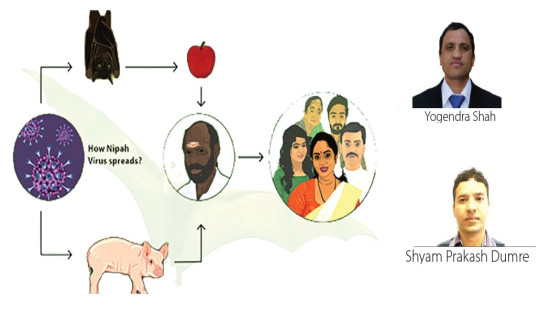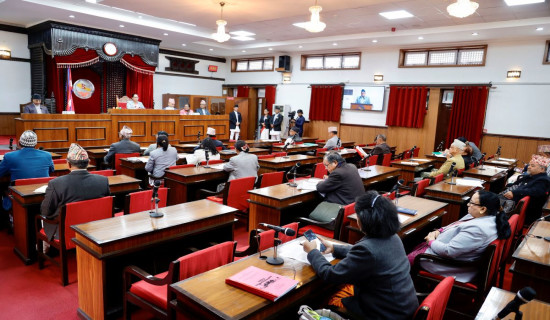- Friday, 6 February 2026
Print Media Enjoys Greater Credibility
Freedom of speech, a free press and right to information constitute fundamental characteristics of democracy in modern time. In a liberal democracy, free speech has been touted as an inalienable part of political and social life. However, free speech and press freedom alone does not strengthen democracy and serve the public. Experiences and examples show that lies, rumours and misinformation are spread and passed to a wider audience by exploiting the freedom of the press. At a time when social networking sites have become ubiquitous, the proliferation of misinformation, disinformation and hate speech has become routine, especially during times of political events such as elections and party conventions.
The country witnessed the successful conclusion of three-tier elections. An election is a time for the media to play its impartial and objective role so that voters are not deceived about the candidates, the political parties and their agenda. But the Election Commission in Nepal was roiled by a barrage of fake news via social media during the poll campaign. To curb fake news and disinformation, the EC asked all to strictly follow the election code of conduct and refrain from the smear campaign against any candidates or parties. It even consulted Facebook, Twitter, Google and TikTok to regulate or curb disinformation and data manipulation through their platforms.
Impact of social media
Much has been said about the impact of social media on changing people's perceptions and transforming the social, cultural and political scenario of the country. But its power to implant false consciousness among the people has posed a threat to democracy as well as the fundamental objectives of the mass media. The media plays a critical role if it guides people and society in the right direction. It should inform the masses about the real situation of the country and the behaviour and activities of the major players. At the same time, the media should be involved in building a positive image of the nation abroad by providing authentic information to the global audience.
While marking the 57th anniversary of The Rising Nepal (TRN) today, it is imperative to ponder over the importance of the oldest English daily in particular and the print media in general. Globally, many newspapers have shifted to the online version, folding their print editions. People's easy access to affordable internet service has revolutionised the media industry, with readers opting for online news portals instead of physical paper. No doubt, digital media have become popular and effective means of communication but this does not mean people have stopped reading newspapers that still earn greater credibility and trustworthiness compared to the online news portals, which have thriven beyond the regulation and monitoring of the oversight agencies.
There is good news for the print media. A recent study, conducted by Sharecast Initiative Nepal, states that readers prefer to read by holding a physical paper in their hands. This indicates the brighter prospect of newspapers if there is a 'proper marketing outreach and distribution channel.' The survey shows that readers trust newspapers more than digital news sites. Although the readership of newspapers/ magazines has declined drastically, 30 per cent of respondents state that print media is very trustworthy and 69 per cent describe it as trustworthy.
On the other hand, only 3 per cent of respondents put trust in social media content. Around 8 per cent believe in online news portals, 89 per cent trust them a little and 3 per cent do not trust them at all. This public trust is the asset of the newspapers, which must be capitalised on to sustain and promote themselves. Although TRN was established as the mouthpiece of the then government during the Panchayat system, it is committed to providing the right information to the readers. Even in a time of harsh political control, the pioneer English daily exercised editorial freedom to objectively report major political events.
Qualitative growth
With the advent of multiparty democracy in 1990, Nepal witnessed the quantitative and qualitative growth of the media sector. The number of newspapers, FM radios, televisions and online news portals has increased tremendously. Media outlets of different genres have indeed contributed to raising people's awareness of public issues and policies at unprecedented levels but at the same time, Nepali journalism has suffered from inherent flaws – commercialisation, politicisation and infiltration of foreign interest. Commercial and partisan interests have deprived readers of the right perspective and balanced and accurate understanding of contentious political, economic and social matters. Foreign investment in the media sector poses a threat to national security and sovereignty. Powerful foreign nations also bribe major media outlets to sell their geopolitical agendas inside the country, harming our national interest.
Social media has been abused to trigger irrational disputes and mislead the masses through biased and false descriptions of events, characters and issues. Infodemics circulated through social networking sites have threatened the integrity of the entire journalism sector. Against this backdrop, TRN as a public media has the onus to disseminate credible and authentic news, analyses and opinion articles. The birth of TRN 56 years ago marked the awakening of Nepali society heading on the path of modernisation. Today we are in a digital era that demands a new structural shift in design, content and goals of the daily. Whatever the political, social and technological milieu, the oldest English broadsheet daily continues to strive to realise its original motto - ‘Pro Bono Publico’ (for the public good) – as it turns 57 today.
(The author is Deputy Executive Editor of this daily.)

















